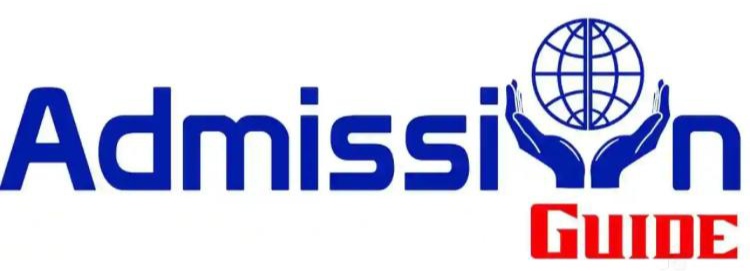Table of Contents
Entering the engineering world through a BTech program is exciting, but the path to admission is often paved with challenges. In today’s competitive landscape, where countless aspiring engineers vie for limited spots in top institutions, crafting a winning application is paramount. Beyond academic transcripts and test scores, your application must tell a compelling story of your passion for engineering, unique experiences, and potential to thrive in a BTech program. In this guide, we’ll delve into the essential components of a winning BTech admission application, providing insights and strategies to unlock success in your journey toward realizing your engineering dreams.
Importance of BTech Admission Application
With the demand for skilled engineers on the rise, the competition for BTech admission has become increasingly fierce. In this blog, we delve into the importance of the BTech admission application process and offer insights into how aspiring students can prepare a winning application to stand out in the crowd.
- Gateway to Opportunity: The BTech admission application serves as the gateway to a plethora of opportunities in the field of engineering and technology. It is the first step towards accessing quality education, specialized knowledge, and practical skills essential for a successful career in the tech industry. A well-crafted application opens the door to top-tier institutions and lays the foundation for future academic and professional endeavors.
- Demonstration of Academic Merit: Academic excellence is a fundamental criterion for BTech admission. The application allows students to showcase their academic prowess through transcripts, standardized test scores, and educational achievements. Strong performance in subjects like mathematics, physics, and computer science demonstrates the candidate’s aptitude for technical studies and prepares them for the rigors of a BTech program.
- Holistic Evaluation of Candidates: Beyond academic credentials, BTech admission committees seek candidates who demonstrate holistic excellence. Extracurricular activities, community involvement, leadership experiences, and personal accomplishments are crucial in shaping a candidate’s profile. The application allows students to present a well-rounded picture of themselves, highlighting their diverse talents, interests, and achievements beyond the classroom.
- Reflection of Personal and Professional Goals: The BTech admission application includes personal statements and letters of recommendation, which provide insight into the candidate’s personal and professional aspirations. Through these elements, applicants can articulate their motivations for pursuing engineering, outline their career goals, and convey how a BTech degree aligns with their ambitions. A compelling narrative that reflects passion, determination, and clarity of purpose can significantly enhance the strength of the application.
- Showcasing Technical Skills and Innovations: In today’s technology-driven world, practical skills and hands-on experience are highly valued in the engineering field. The application allows candidates to showcase their technical expertise through projects, research endeavors, internships, and coding experiences. Whether designing a prototype, developing software, or participating in engineering competitions, demonstrating innovation and proficiency in technical domains can set applicants apart from their peers.
- Alignment with Institutional Values and Resources: Every BTech program has unique strengths, resources, and academic culture. The application allows candidates to articulate why they are interested in a particular institution and how they envision contributing to its educational community. By aligning their interests, goals, and values with those of the institution, applicants demonstrate a genuine commitment to their chosen field of study and enhance their chances of admission.
Unlock Success: Crafting a Winning BTech Admission Application
In the fiercely competitive landscape of higher education, securing admission to a BTech program requires more than just good grades. It demands a well-crafted application that showcases your strengths, achievements, and aspirations. Here’s a comprehensive guide to help you prepare a winning application for BTech admission.
- Research and Choose Wisely: Begin by researching various BTech programs offered by different institutions. Consider factors such as curriculum, faculty expertise, research opportunities, campus culture, and placement records. Choose institutions that align with your academic interests and career goals.
- Highlight Academic Achievements: Your academic performance is a crucial application component. Provide transcripts of your high school grades, standardized test scores (if required), and any additional academic achievements such as honors, awards, or scholarships. Emphasize your strengths in science, mathematics, and relevant subjects.
- Showcase Extracurricular Activities: Beyond academics, admissions committees value well-rounded candidates. Highlight your involvement in extracurricular activities such as sports, clubs, community service, leadership roles, or internships. These experiences demonstrate your initiative, teamwork, and commitment outside the classroom.
- Personal Statement: The personal statement is your opportunity to convey your passion for engineering, your reasons for choosing BTech, and what makes you a unique candidate. Share personal anecdotes, experiences, or challenges that have shaped your academic and career aspirations. Be authentic, articulate, and concise in expressing your motivations and goals.
- Letters of Recommendation: Strong letters of recommendation from teachers, mentors, or employers can provide valuable insights into your character, academic abilities, and potential for success in a BTech program. Choose recommenders who know you well and can speak to your strengths and achievements.
- Highlight Technical Skills and Projects: If you have any technical skills or projects relevant to your field of study, showcase them in your application. This could include coding projects, engineering prototypes, research papers, or participation in science fairs or competitions. Demonstrate your hands-on experience and passion for innovation.
- Tailor Your Application: Customize your application for each institution you apply to. Highlight specific programs, facilities, faculty members, or research opportunities that interest you at each school. Show the admissions committee that you’ve done your homework and are enthusiastic about their program.
- Proofread and Revise: Attention to detail is crucial in making a favorable impression. Proofread your application carefully to eliminate grammatical errors, typos, or inconsistencies. Ask trusted friends, family members, or teachers to review your application for feedback and suggestions for improvement.
- Meet Deadlines: Adhere to each institution’s application deadlines and submission requirements. Only on-time applications may receive full consideration, so plan and give yourself ample time to complete and review your materials before the deadline.
- Follow-up: After submitting your application, follow up with the admissions office to confirm receipt of all required documents and to inquire about the status of your application. Stay proactive and demonstrate your continued interest in the program.
Conclusion
The journey to BTech admission success is multifaceted, requiring careful planning, self-reflection, and strategic execution. By implementing the strategies outlined in this guide, you can enhance your chances of standing out in a competitive applicant pool and securing admission to your desired BTech program. Remember, your application is more than just a collection of documents; it reflects your passion, dedication, and potential as an aspiring engineer.
As you navigate the application process, stay true to yourself and let your unique experiences and aspirations shine through. Embrace challenges as opportunities for growth, and approach each aspect of your application with diligence and enthusiasm. Whether highlighting your academic achievements, showcasing your extracurricular pursuits, or articulating your motivations in a compelling personal statement, every element of your application plays a crucial role in shaping the admissions committee’s perception of you as a candidate.
What academic qualifications are typically required for BTech admission?


BTech programs typically require candidates to have completed their high school education with a strong emphasis on mathematics, physics, and chemistry. Most institutions also consider standardized test scores, such as the SAT or ACT, and may have specific requirements for minimum GPA or class rank.
What should I include in my personal statement or essay?
Your personal statement is an opportunity to showcase your personality, motivations, and aspirations. Focus on why you’re passionate about engineering, what experiences have shaped your interest, and how a BTech degree aligns with your future goals. Highlight personal anecdotes, challenges overcome, and how you envision contributing to the engineering community.
Do extracurricular activities matter in BTech admissions?
Yes, extracurricular activities can play a significant role in BTech admissions. Admissions committees look for candidates who demonstrate a well-rounded profile with interests beyond academics. Participation in clubs, sports, community service, internships, or STEM-related activities can showcase your leadership skills, teamwork, and initiative.
Are letters of recommendation important? Who should write them?
Letters of recommendation provide insight into your character, academic abilities, and potential for success in a BTech program. Choose recommenders who know you well and can speak to your strengths, achievements, and personal qualities. Ideal recommenders include teachers, mentors, supervisors, or employers who can provide specific examples of your abilities.
How can I stand out in my BTech application?
To stand out in your BTech application, highlight your unique strengths, experiences, and accomplishments. Showcase any relevant technical skills, projects, or research endeavors. Tailor your application to each institution, demonstrating genuine interest and alignment with their values and resources. Additionally, ensure your application is well-written, error-free, and submitted before the deadline.

